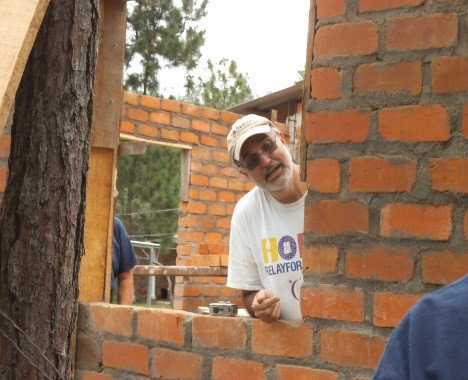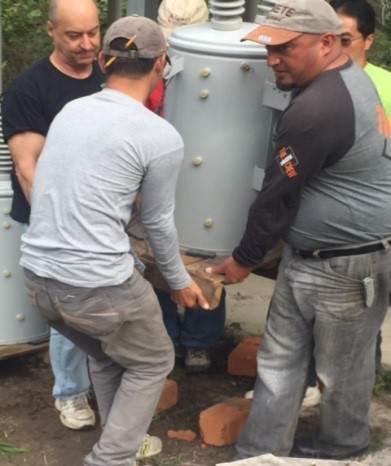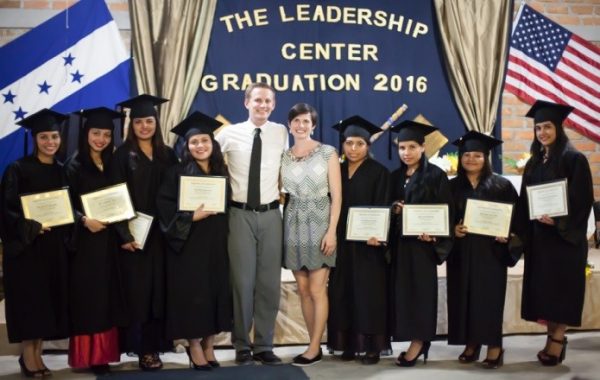Alumna Spotlight: Carol Frey (’13)
“My unfinished final project”
In a recent interview with MALS Alumna Carol Frey, Carol discusses the personal impact that she experienced through her MALS studies and how it kindled a passion to help others.
I returned to college classrooms after 40 years with modest goals: Continue studying Spanish so that I can carry on a conversation in it, and fill the Latin America gap in my education enough to understand my new Latino neighbors in West Raleigh a bit better. The MALS program offered me a chance to do both and earn a master’s degree in the process. I learned some Latin American history, the politics of revolution, the sociology of economic development and the characteristics of development that lasts and thrives. For my final project, I wrote about a promising economic development project 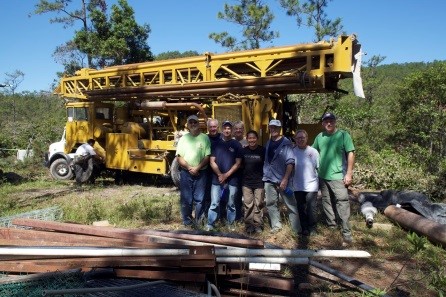 in one of the poorest countries in our hemisphere – Honduras – and carved out a role for myself that would engage my mind and body in my post-retirement life.
in one of the poorest countries in our hemisphere – Honduras – and carved out a role for myself that would engage my mind and body in my post-retirement life.
On a 2011 visit to The Leadership Center on a remote mountaintop in the Central Highlands of Honduras, I expected to find food insecurity related to the movement of farmers into urban areas. What I actually found was surface water that sickened many of the center’s 12 students or often no drinking water at all. To improve water quality, the center’s staff said a 1,000-gallon tank to hold water that was continually being filtered was needed. When I came back home, I started telling friends I needed to raise $2,000 so that TLC could buy that big tank. Within a month I was able to send the money and the tank was installed on campus soon after. When dry season came, the center found that it needed to double its storage capacity, especially with more students being recruited. The more I talked about TLC and what was happening with the water, the more donors wanted to help and another 1,000-gallon tank was installed alongside the first. On my second visit in 2012, I saw 19 students learning to navigate the world of business with new knowledge of math, accounting, critical thinking and English, the language of global business. Without public sector help of any kind, TLC was nurturing women who could support families.
At graduation, I said I wanted to keep working in Honduras, to help extend TLC’s influence into the neighboring villages where people scrape by without public electricity, 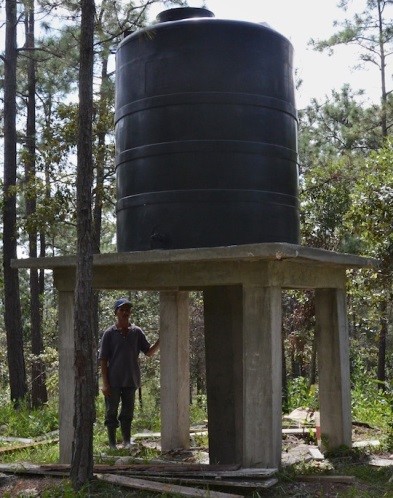 water/sewer, trash removal or transportation. I aimed to help solve the problem of a drinking water supply contaminated by farm chemicals and fecal bacteria. Here’s a progress report:
water/sewer, trash removal or transportation. I aimed to help solve the problem of a drinking water supply contaminated by farm chemicals and fecal bacteria. Here’s a progress report:
The congregation of Genesis United Methodist Church in Cary decided to partner with me in 2014, allocating funds from its budget to match funds raised by teams I’ve organized. We connected a drilling company in Honduras to TLC’s staff and nine of us traveled there to help the campus work crew while the drilling was under way. An economical supply of water was located 500 feet below the campus, requiring not one but two pumps to bring water to the surface. (The second keeps the well producing in case the other one stops working.) More solar panels were installed to run the pump and a 20,000-gallon tank was built to hold more clean water to meet campus demand. In 2016, a private company reached agreement with the Honduran government to build a hydropower plant that will sell electricity to the government that, in turn, will be sold to TLC and its neighbors.
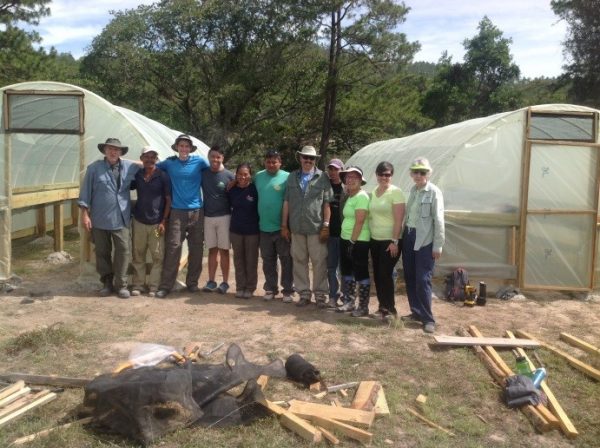 Meanwhile TLC’s coffee production is growing toward the day that coffee sales will support the campus and its students who are sponsored now by volunteers. Genesis teams have picked coffee alongside the students during the crucial fall harvest. In 2015, I led a team that built two structures for drying coffee beans before they are roasted. And this past November, I led a team of Genesis builders who put an addition onto the campus library making space for a computer lab. They also helped the power company workers move heavy transformers where they could be hoisted to the top of the new poles that will provide power 24-7 starting early 2017.
Meanwhile TLC’s coffee production is growing toward the day that coffee sales will support the campus and its students who are sponsored now by volunteers. Genesis teams have picked coffee alongside the students during the crucial fall harvest. In 2015, I led a team that built two structures for drying coffee beans before they are roasted. And this past November, I led a team of Genesis builders who put an addition onto the campus library making space for a computer lab. They also helped the power company workers move heavy transformers where they could be hoisted to the top of the new poles that will provide power 24-7 starting early 2017.
Graduations are scheduled in April and September, continually making room for new students. TLC President Joseph Rahm, below right with his wife Hailey, hope to recruit two new classes of students in 2017 and to start a program for prospective teachers in response to demand from public schools and private bilingual schools for English teachers. As TLC´s influence spreads beyond its mountaintop, I am working toward a project with Rotary International to install water filters and septic latrines for hundreds of families living near the campus. This vision of healthy children dreaming of a successful future drives me every day.
